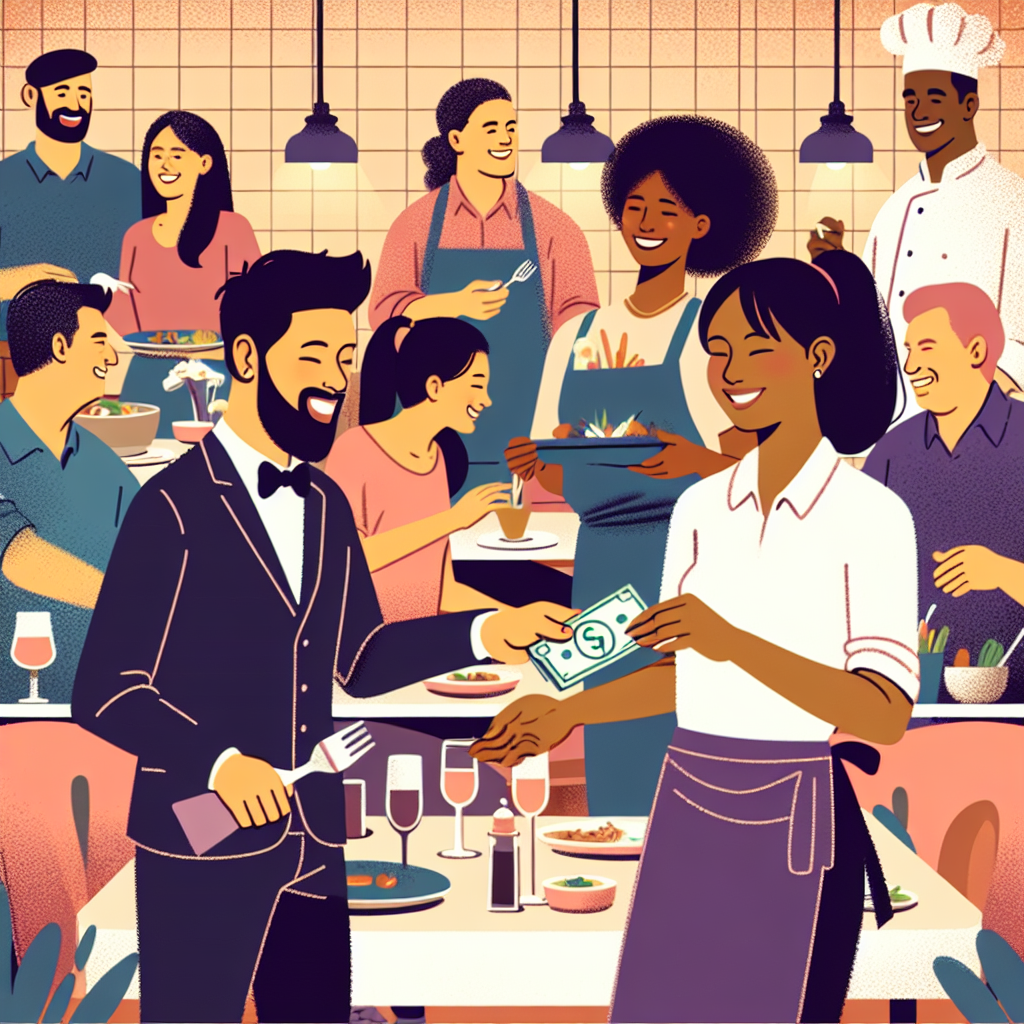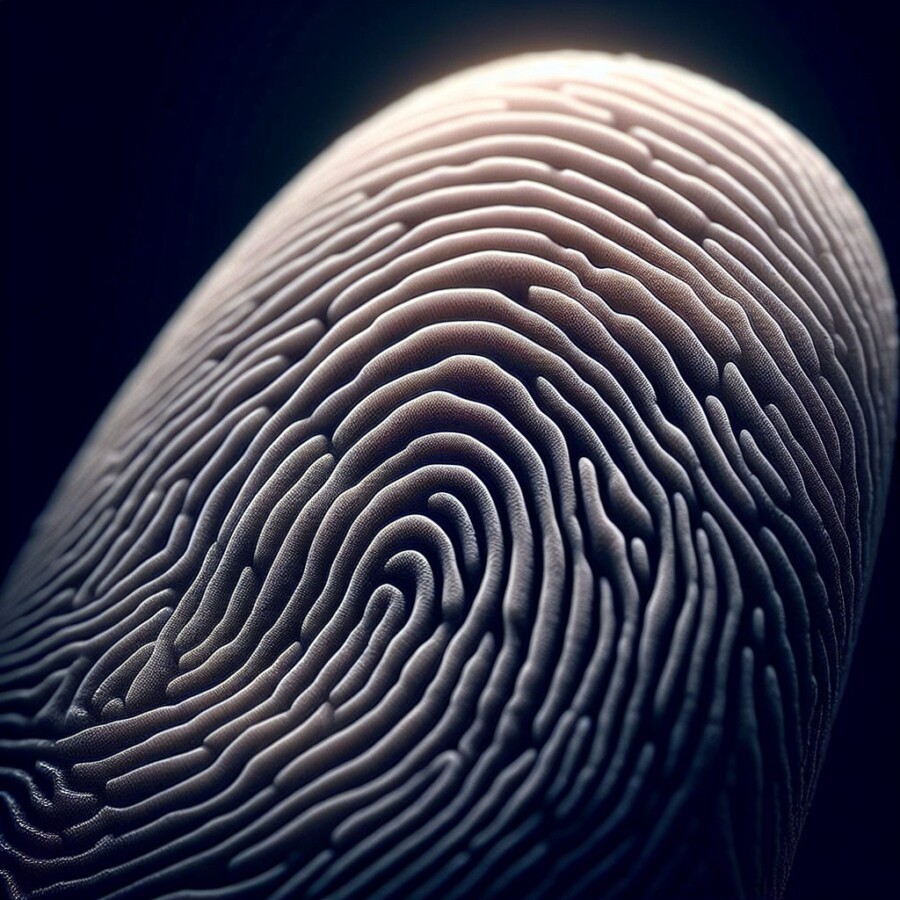When you eat out, deciding whether to tip, especially if the service wasn’t great, can be stressful. Tipping is common in places like restaurants, hair salons, taxis, and hotels. A recent law in the UK guarantees that workers get all their tips, which helps many employees. While there aren’t strict rules on how much to tip, it’s important to show gratitude for good service, according to etiquette experts.
Tipping customs differ between people and countries. In the UK, a service charge is often added to the bill, and a 10-15% tip is recommended. In the US, tipping can go over 20% and might even be expected. In some Asian nations, tipping used to be seen as impolite, but Western influence is changing that. The amount you tip could be influenced by the type of restaurant, with fancier places usually getting bigger tips to show generosity.
Some customers don’t like automatic service charges on their bills because they feel pressured. It’s important to check if a service charge is included and ask to remove it if you think it’s not needed. Leaving a good review on social media is becoming another way to show appreciation instead of tipping. This can help the whole team, from the front-of-house staff to the kitchen workers, and businesses really value this kind of support.
Tipping has changed from just leaving coins to now including card and contactless payments. The idea behind tipping is still strong as a way to thank workers for their hard work. Even though tipping is a personal decision, it’s crucial to make sure that staff get the recognition they deserve for good service. Whether you tip or leave a positive review, recognizing and valuing the work of service workers is vital in the hospitality industry.
Original news source: Should you tip even if the service wasn’t worth it? (BBC)
🎧 Listen:
Slow
Normal
Fast
📖 Vocabulary:
| 1 | etiquette | The rules for polite behavior in society |
| 2 | gratitude | A feeling of thankfulness |
| 3 | customs | Traditions or usual ways of doing things |
| 4 | impolite | Rude or not showing good manners |
| 5 | generosity | Willingness to give more than necessary |
| 6 | pressured | Feeling forced to do something |
| 7 | appreciation | A feeling of being thankful and valuing something |
| 8 | recognition | Being noticed or acknowledged for something |
| 9 | hospitality | Friendly and welcoming treatment of guests |
| 10 | influence | The power to change or affect someone or something |
| 11 | automatic | Happening by itself without human control |
| 12 | crucial | Extremely important or necessary |
| 13 | contactless | A way of paying without physical contact, like using a card |
| 14 | vital | Absolutely necessary or important |
| 15 | deserve | To have earned something because of your actions or qualities |
Group or Classroom Activities
Warm-up Activities:
– Headline Creation
Instructions: Ask students to work in pairs or small groups to create a catchy headline summarizing the main idea of the article about tipping etiquette. Encourage them to be creative and concise in their headline.
– Vocabulary Pictionary
Instructions: Write down key vocabulary words from the article on separate pieces of paper. Divide the class into two teams. One person from each team will pick a word and have to draw it on the board without using letters or numbers. Their team members have to guess the word. Set a time limit for each round.
– Think-Pair-Share
Instructions: Have the students think individually about a time when they had a positive or negative experience with tipping. Then, pair them up to discuss their stories. Finally, ask some pairs to share their experiences with the whole class. Encourage them to use vocabulary from the article.
– Opinion Poll
Instructions: Create a set of questions related to tipping customs, such as “Do you think tipping should be mandatory?” or “What factors influence how much you tip?” Have students move around the classroom and ask their classmates these questions, tallying the responses. Afterward, discuss the results as a class.
– Synonym Challenge
Instructions: Write down key words from the article on the board (e.g., tip, service, gratitude, recognition). In pairs, students have to come up with as many synonyms for each word as they can in a limited amount of time. The pair with the most synonyms wins. Discuss the different synonyms as a class.
🤔 Comprehension Questions:
1. Why can deciding whether to tip be stressful when eating out?
2. How does the recent law in the UK benefit workers in terms of tips?
3. What is the recommended percentage for tipping in the UK?
4. How does the US tipping percentage compare to the UK’s recommendation?
5. Why is leaving a good review on social media becoming an alternative way to show appreciation?
6. How has the method of tipping changed over time regarding payment options?
7. Why do some customers dislike automatic service charges on their bills?
8. Why is it crucial to recognize and value the work of service workers in the hospitality industry, whether through tipping or other means?
Go to answers ⇩
🎧✍️ Listen and Fill in the Gaps:
When you eat out, deciding whether to tip, especially if the service wasn’t great, can be (1)______. Tipping is common in places like (2)______, hair salons, taxis, and hotels. A recent law in the UK (3)______ that (4)______ get all their tips, which helps many employees. While there aren’t strict rules on how much to tip, it’s important to show gratitude for good service, according to etiquette experts.
Tipping customs differ between people and countries. In the UK, a service charge is often added to the bill, and a 10-15% tip is recommended. In the US, tipping can go over 20% and might even be expected. In some Asian nations, tipping used to be seen as (5)______, but Western influence is changing that. The (6)______ you tip could be influenced by the type of (7)______, with fancier (8)______ usually getting bigger tips to show generosity.
Some customers don’t like automatic (9)______ (10)______ on their bills because they feel pressured. It’s important to check if a service charge is included and ask to remove it if you think it’s not needed. Leaving a good review on social media is becoming another way to show appreciation instead of tipping. This can help the whole team, from the front-of-house staff to the kitchen workers, and (11)______ really (12)______ this kind of support.
Tipping has changed from just leaving coins to now including card and contactless (13)______. The idea behind (14)______ is still (15)______ as a way to thank workers for their hard work. Even though tipping is a personal decision, it’s crucial to make sure that staff get the recognition they deserve for good service. Whether you tip or leave a positive (16)______, recognizing and valuing the work of service workers is vital in the hospitality industry.
Go to answers ⇩
💬 Discussion Questions:
Students can ask a partner these questions, or discuss them as a group.
1. What is tipping and why do you think it’s important?
2. How would you feel if you received bad service at a restaurant but still had to tip?
3. Do you like the idea of leaving a good review on social media instead of tipping? Why or why not?
4. Do you think it’s fair for automatic service charges to be added to bills? Why or why not?
5. What is your opinion on the different tipping customs in various countries?
6. How do you decide how much to tip when you go out to eat?
7. Have you ever felt pressured to tip even when you didn’t want to? How did you handle it?
8. Why do you think tipping is more common in some places than others?
9. Do you think tipping should be based on a percentage of the bill or a flat rate? Why?
10. What would you do if you received exceptional service at a restaurant but couldn’t afford to leave a big tip?
11. How do you think tipping affects the morale of service workers?
12. Have you ever left a positive review for a business online? How do you think it helps the staff?
13. Why do you think some people prefer to tip in cash rather than on a card?
14. Do you think the hospitality industry would function the same without tipping? Why or why not?
15. How important do you think it is to show gratitude for good service, whether through tipping or other means?
Individual Activities
📖💭 Vocabulary Meanings:
Match each word to its meaning.
Words:
1. etiquette
2. gratitude
3. customs
4. impolite
5. generosity
6. pressured
7. appreciation
8. recognition
9. hospitality
10. influence
11. automatic
12. crucial
13. contactless
14. vital
15. deserve
Meanings:
(A) Feeling forced to do something
(B) Willingness to give more than necessary
(C) Happening by itself without human control
(D) A feeling of thankfulness
(E) A way of paying without physical contact, like using a card
(F) To have earned something because of your actions or qualities
(G) A feeling of being thankful and valuing something
(H) The power to change or affect someone or something
(I) The rules for polite behavior in society
(J) Traditions or usual ways of doing things
(K) Absolutely necessary or important
(L) Rude or not showing good manners
(M) Being noticed or acknowledged for something
(N) Friendly and welcoming treatment of guests
(O) Extremely important or necessary
Go to answers ⇩
🔡 Multiple Choice Questions:
1. Where is tipping common?
(a) Schools and libraries
(b) Parks and movie theaters
(c) Restaurants, hair salons, taxis, and hotels
(d) Grocery stores and gas stations
2. What does a recent law in the UK ensure?
(a) Customers don’t have to tip
(b) Workers get all their tips
(c) Workers don’t receive any tips
(d) Tipping is not allowed in the UK
3. How much is a 10-15% tip recommended in the UK?
(a) 5-10%
(b) 20-25%
(c) 30-35%
(d) 10-15%
4. In which country can tipping go over 20%?
(a) US
(b) UK
(c) Canada
(d) Australia
5. In some Asian nations, tipping used to be seen as:
(a) Generous
(b) Expected
(c) Mandatory
(d) Impolite
6. What is becoming another way to show appreciation instead of tipping?
(a) Leaving a good review on social media
(b) Ignoring the service
(c) Complaining to the manager
(d) Leaving without paying
7. What has tipping evolved to include besides coins?
(a) Checks
(b) Card and contactless payments
(c) Cash only
(d) Cryptocurrency
8. Why is it crucial to recognize and value the work of service workers?
(a) To avoid tipping altogether
(b) To save money
(c) To thank them for their hard work
(d) To show off on social media
Go to answers ⇩
🕵️ True or False Questions:
1. A recent law in the UK ensures that workers receive all their tips.
2. There are no strict rules on how much to tip, but showing gratitude for good service is important.
3. Leaving a negative review on social media is another way to show appreciation instead of tipping.
4. Tipping has evolved to include card and contactless payments, but the purpose remains the same – to thank workers for their hard work.
5. Some customers appreciate automatic service charges on their bills.
6. Tipping can be relaxing, especially when the service isn’t great.
7. Tipping customs remain consistent between different countries and people.
8. In the UK, a 10-15% tip is recommended, while in the US, tipping can exceed 20%.
Go to answers ⇩
📝 Write a Summary:
Write a summary of this news article in two sentences.
Check your writing now with the best free AI for English writing!
Writing Questions:
Answer the following questions. Write as much as you can for each answer.
Check your answers with our free English writing assistant!
1. Why can deciding whether to tip be stressful when eating out?
2. What recent law in the UK helps ensure that workers receive all their tips?
3. How do tipping customs differ between the UK, the US, and some Asian nations?
4. Why do some customers not like automatic service charges on their bills?
5. Besides tipping, what is another way to show appreciation for good service according to the article?
✅ Answers
🤔✅ Comprehension Question Answers:
1. Why can deciding whether to tip be stressful when eating out?
Deciding whether to tip can be stressful when eating out because some people may feel unsure about how much to tip, especially if the service was not great.
2. How does the recent law in the UK benefit workers in terms of tips?
The recent law in the UK guarantees that workers get to keep all their tips, ensuring they receive the full amount left by customers, which helps many employees.
3. What is the recommended percentage for tipping in the UK?
In the UK, a 10-15% tip is often recommended as a gesture of gratitude for good service.
4. How does the US tipping percentage compare to the UK’s recommendation?
In the US, tipping can go over 20% and sometimes is even expected, which is higher compared to the UK’s recommendation of 10-15%.
5. Why is leaving a good review on social media becoming an alternative way to show appreciation?
Leaving a good review on social media is becoming an alternative way to show appreciation because it can help the whole team, from the front-of-house staff to the kitchen workers, and businesses really value this kind of support.
6. How has the method of tipping changed over time regarding payment options?
The method of tipping has changed over time to include not just leaving coins but also card and contactless payments, making it more convenient for customers to tip.
7. Why do some customers dislike automatic service charges on their bills?
Some customers dislike automatic service charges on their bills because they may feel pressured and prefer to have the choice of how much to tip based on the service they received.
8. Why is it crucial to recognize and value the work of service workers in the hospitality industry, whether through tipping or other means?
It is crucial to recognize and value the work of service workers in the hospitality industry because they work hard to provide good service, and showing appreciation through tipping or other means ensures they receive the recognition they deserve.
Go back to questions ⇧
🎧✍️✅ Listen and Fill in the Gaps Answers:
(1) stressful
(2) restaurants
(3) guarantees
(4) workers
(5) impolite
(6) amount
(7) restaurant
(8) places
(9) service
(10) charges
(11) businesses
(12) value
(13) payments
(14) tipping
(15) strong
(16) review
Go back to questions ⇧
📖💭✅ Vocabulary Meanings Answers:
1. etiquette
Answer: (I) The rules for polite behavior in society
2. gratitude
Answer: (D) A feeling of thankfulness
3. customs
Answer: (J) Traditions or usual ways of doing things
4. impolite
Answer: (L) Rude or not showing good manners
5. generosity
Answer: (B) Willingness to give more than necessary
6. pressured
Answer: (A) Feeling forced to do something
7. appreciation
Answer: (G) A feeling of being thankful and valuing something
8. recognition
Answer: (M) Being noticed or acknowledged for something
9. hospitality
Answer: (N) Friendly and welcoming treatment of guests
10. influence
Answer: (H) The power to change or affect someone or something
11. automatic
Answer: (C) Happening by itself without human control
12. crucial
Answer: (O) Extremely important or necessary
13. contactless
Answer: (E) A way of paying without physical contact, like using a card
14. vital
Answer: (K) Absolutely necessary or important
15. deserve
Answer: (F) To have earned something because of your actions or qualities
Go back to questions ⇧
🔡✅ Multiple Choice Answers:
1. Where is tipping common?
Answer: (c) Restaurants, hair salons, taxis, and hotels
2. What does a recent law in the UK ensure?
Answer: (b) Workers get all their tips
3. How much is a 10-15% tip recommended in the UK?
Answer: (d) 10-15%
4. In which country can tipping go over 20%?
Answer: (a) US
5. In some Asian nations, tipping used to be seen as:
Answer: (d) Impolite
6. What is becoming another way to show appreciation instead of tipping?
Answer: (a) Leaving a good review on social media
7. What has tipping evolved to include besides coins?
Answer: (b) Card and contactless payments
8. Why is it crucial to recognize and value the work of service workers?
Answer: (c) To thank them for their hard work
Go back to questions ⇧
🕵️✅ True or False Answers:
1. A recent law in the UK ensures that workers receive all their tips. (Answer: True)
2. There are no strict rules on how much to tip, but showing gratitude for good service is important. (Answer: True)
3. Leaving a negative review on social media is another way to show appreciation instead of tipping. (Answer: False)
4. Tipping has evolved to include card and contactless payments, but the purpose remains the same – to thank workers for their hard work. (Answer: True)
5. Some customers appreciate automatic service charges on their bills. (Answer: False)
6. Tipping can be relaxing, especially when the service isn’t great. (Answer: False)
7. Tipping customs remain consistent between different countries and people. (Answer: False)
8. In the UK, a 10-15% tip is recommended, while in the US, tipping can exceed 20%. (Answer: True)
Go back to questions ⇧















